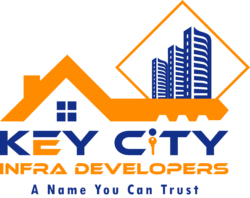The Ultimate Cheat Sheet on Real Estate
Navigating the complex world of real estate can be daunting, whether you’re a first-time homebuyer, seasoned investor, or real estate professional. This cheat sheet compiles essential tips, insights, and resources to help you make informed decisions and achieve success in your real estate endeavors:
Understanding Your Goals and Budget
- Define Your Objectives: Clarify your goals—whether it’s buying a home, investing in rental properties, or expanding your real estate portfolio.
- Set a Realistic Budget: Assess your financial situation, including savings, credit score, and mortgage pre-approval. Determine how much you can afford to invest or spend on a property.
Researching the Market
- Local Market Trends: Stay updated on current market conditions, including property prices, inventory levels, and average days on market.
- Neighborhood Insights: Research neighborhoods based on amenities, schools, crime rates, and future development plans. Understand factors that influence property values in different areas.
Choosing the Right Real Estate Professional
- Selecting a Realtor: Find a knowledgeable and reputable real estate agent who understands your needs and local market dynamics.
- Working with Experts: Consider engaging with mortgage brokers, real estate attorneys, and home inspectors to guide you through the buying or selling process.
Financing Options and Mortgage Tips
- Explore Mortgage Options: Compare mortgage rates, terms, and types (e.g., fixed-rate vs. adjustable-rate mortgages) to find the best fit for your financial situation.
- Understand Closing Costs: Factor in closing costs, including appraisal fees, title insurance, and lender fees. Budget accordingly to avoid financial surprises at closing.
Property Search and Evaluation
- Define Property Criteria: Prioritize features such as location, size, amenities, and potential for appreciation or rental income.
- Conduct Thorough Inspections: Hire qualified inspectors to evaluate the property’s condition, including structural integrity, plumbing, electrical systems, and potential maintenance issues.

Negotiation Strategies
- Prepare to Negotiate: Gather market data, comparable sales, and property insights to support your offer or counteroffer.
- Negotiation Tips: Focus on win-win outcomes, be open to compromises, and leverage your real estate agent’s negotiation skills for favorable terms.
Legal Considerations and Contracts
- Review Legal Documents: Understand contract terms, contingencies, and legal obligations related to property transactions.
- Consult with Professionals: Seek guidance from real estate attorneys to review documents and ensure compliance with local regulations.
Property Management and Rental Investments
- Investment Strategies: Evaluate rental property potential based on rental yield, vacancy rates, maintenance costs, and local rental market trends.
- Tenant Screening: Implement rigorous tenant screening processes to select reliable tenants and minimize risks of rental income disruption.
Home Improvement and Maintenance
- Prioritize Upgrades: Focus on cost-effective home improvements that enhance property value, curb appeal, and energy efficiency.
- Regular Maintenance: Schedule routine maintenance tasks, such as HVAC inspections, roof repairs, and landscaping, to preserve property condition and minimize long-term expenses.
Staying Informed and Adapting
- Continued Learning: Stay updated on real estate trends, industry regulations, and technological advancements that impact your investments or property management strategies.
- Adapt to Market Changes: Be flexible in your approach, adjust strategies based on market shifts, and seize opportunities for growth and diversification.





